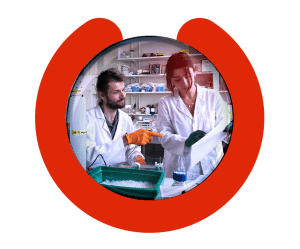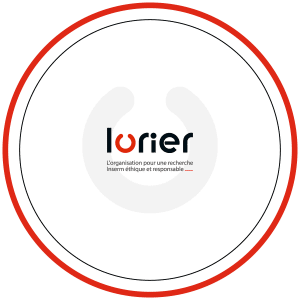The Inserm Ethics Committee (IEC) leads reflection on the ethical issues raised by scientific and medical research carried out within Inserm and with its partners.
Three statements proposed by Paul Ricœur guide the committee’s reflection:
- “My freedom, your freedom, the rule”: the aim is to determine how each individual’s freedom can be based on common rules.
- “We enter the realm of ethics when, in addition to affirming our own freedom, we want the freedom of others to exist”: this is an emancipating principle of science in an inclusive approach
- “The aim of the good life, with and for others, within just institutions”: this is the principle of placing the work of scientists at the service of society.
Hervé Chneiweiss, Président
The Inserm Ethics Committee (IEC)
The Inserm Ethics Committee deals with practical ethical issues that are raised by Inserm scientists in the course of their work, and it anticipates ethical issues associated with biomedical research. It comprises around twenty members appointed for a three-year term. In addition, eight permanent guest members, mainly representing other Inserm structures with a direct link to ethics and integrity, participate actively in the committee’s missions and work. The committee is organised into working groups, where the themes evolve according to emerging ethical issues.
The main tasks of the IEC :
- Lead reflection on the ethical aspects associated with research practices
- To raise awareness of the importance of ethics among research staff
- To produce recommendations on the rules governing research ethics in relation to scientists’ institutional and societal responsibilities
- To encourage reflection on ethical issues both by partners of Inserm and by the general public through the organisation of events
- To encourage and organise public debate on ethical issues in emerging areas of biomedical innovation.
Contact : comite-ethique@inserm.fr
Referral to the Inserm Ethics Committee
The Ethics Committee can
- be called on by :
- Any Inserm staff member
- Inserm General Management
- Inserm scientific bodies
- Another Inserm structure
- Self-referral
How to refer a matter to the Ethics Committee :
- Send a letter of referral to the Chairman of the Ethics Committee, setting out the precise context and objectives of the referral. Contact : comite-ethique@inserm.f
- The committee will respond to your request.
- If the committee agrees, a working group will be set up to consider the matter and produce a written report as soon as possible.
News

La plus grande force de la science : douter d’elle-même

Ce mercredi, journée annuelle du Comité d’éthique de l’Inserm (CEI) en présentiel et en ligne

École d’été de l’Espace éthique Île-de-France “L’éthique au croisement du social, du sanitaire et du médico-social”
Les neurotechnologies et la gouvernance de l’internet
A dynamic partnership
The Committee is constantly working in partnership with other ethics-related bodies :
- In 2014, the Committee produced a memorandum on the management of notifications of links of interest and conflicts of interest. Gestion des déclarations de liens d’intérêts et des conflits d’intérêts
- The Neurotechnologies and Education Theme Group, set up in 2022, works jointly with CNRS COMETS
on societal issues raised by the use of neurotechnologies in education. - Annual conferences are organised with the Espace Ethique Région Ile-de-France, a partner of the Committee.
- There are meetings with other institutional ethics committees, under the aegis of the Comité Consultatif National d’Ethique, to which the Committee actively contributes.
Research on ethics and the global governance of ethical issues on an international level
The Committee has initiated or contributed to international initiatives in areas including genome editing, genomic medicine, the protection of healthy volunteers and the ethics of organoids.